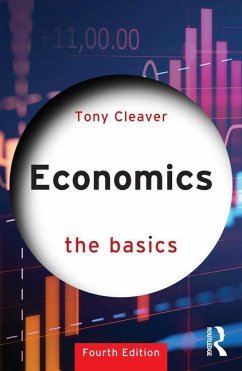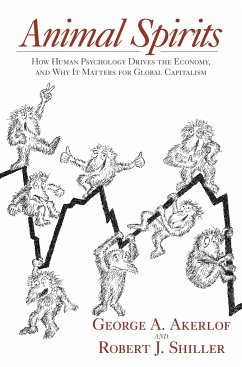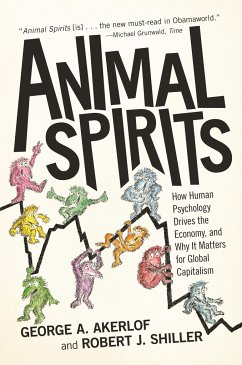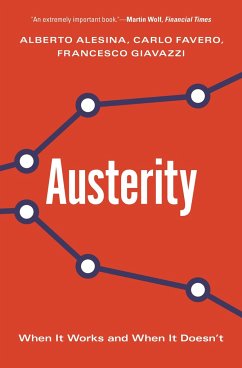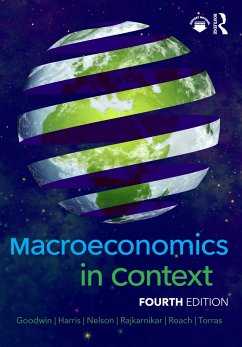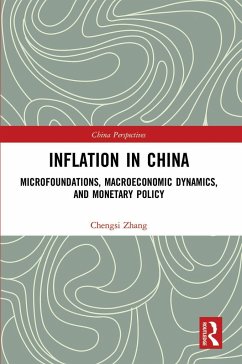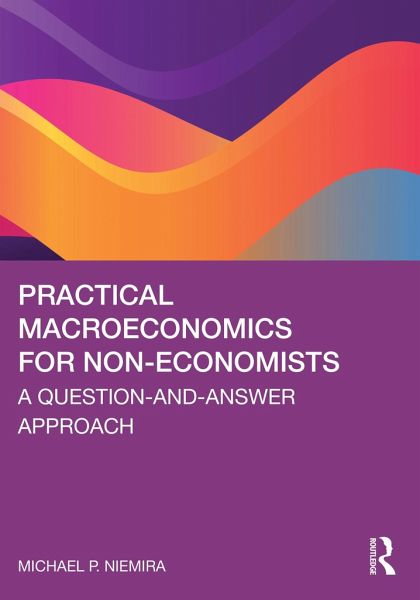
Practical Macroeconomics for Non-Economists
A Question-and-Answer Approach
Versandkostenfrei!
Versandfertig in 6-10 Tagen
60,99 €
inkl. MwSt.
Weitere Ausgaben:

PAYBACK Punkte
30 °P sammeln!
Practical Macroeconomics for Non-Economists provides the tools, the theory, and the empirical understanding of macroeconomics without the heavy lifting of the mathematical and econometric models.This accessible book introduces the building blocks of macroeconomic thinking and challenges the reader to apply these insights to learn why economists say what they do and what guides economic policymakers. Linking actual data to theoretical concepts, it explores competing economic theories, and uncovers some of the key controversies in macroeconomic theory and how different perspectives lead to alter...
Practical Macroeconomics for Non-Economists provides the tools, the theory, and the empirical understanding of macroeconomics without the heavy lifting of the mathematical and econometric models.
This accessible book introduces the building blocks of macroeconomic thinking and challenges the reader to apply these insights to learn why economists say what they do and what guides economic policymakers. Linking actual data to theoretical concepts, it explores competing economic theories, and uncovers some of the key controversies in macroeconomic theory and how different perspectives lead to alternative and vastly different policy recommendations.
Key features include:
Coverage of all the key macroeconomic topics, such as GDP, inflation, unemployment, output and productivity, business cycles, aggregate demand/supply, and fiscal and monetary policyQuestion-and-answer format, covering the foundations of each topic in a logical progression, to provide the reader with a quick reference and more focused discussion"Advanced questions" to encourage deeper discussionStart-of-chapter learning objectives, which allow the reader to "see" the road ahead for each sectionEnd-of-chapter "Issues to think about" boxed features, which offer the reader an opportunity to apply critical thinking to the issues coveredResource manual and PowerPoints for instructors
Practical Macroeconomics for Non-Economists is the ideal textbook for anyone looking for a practical and non-technical introduction to the subject.
This accessible book introduces the building blocks of macroeconomic thinking and challenges the reader to apply these insights to learn why economists say what they do and what guides economic policymakers. Linking actual data to theoretical concepts, it explores competing economic theories, and uncovers some of the key controversies in macroeconomic theory and how different perspectives lead to alternative and vastly different policy recommendations.
Key features include:
Coverage of all the key macroeconomic topics, such as GDP, inflation, unemployment, output and productivity, business cycles, aggregate demand/supply, and fiscal and monetary policyQuestion-and-answer format, covering the foundations of each topic in a logical progression, to provide the reader with a quick reference and more focused discussion"Advanced questions" to encourage deeper discussionStart-of-chapter learning objectives, which allow the reader to "see" the road ahead for each sectionEnd-of-chapter "Issues to think about" boxed features, which offer the reader an opportunity to apply critical thinking to the issues coveredResource manual and PowerPoints for instructors
Practical Macroeconomics for Non-Economists is the ideal textbook for anyone looking for a practical and non-technical introduction to the subject.




